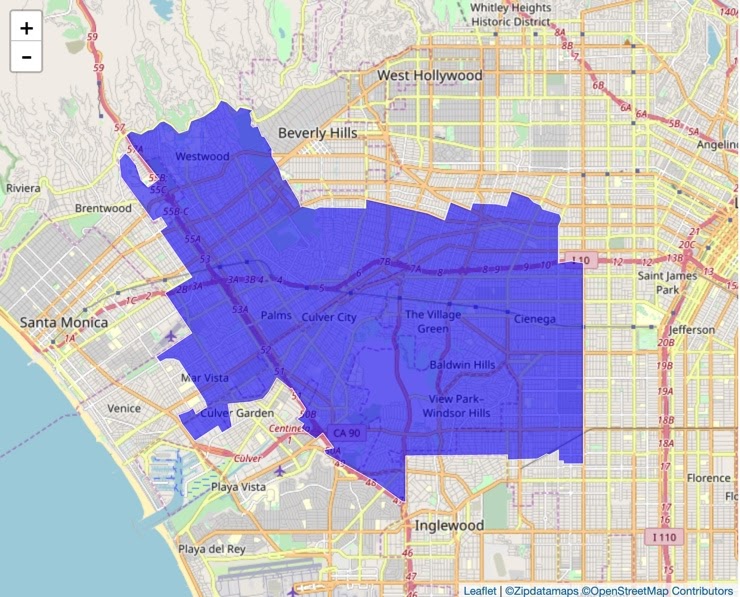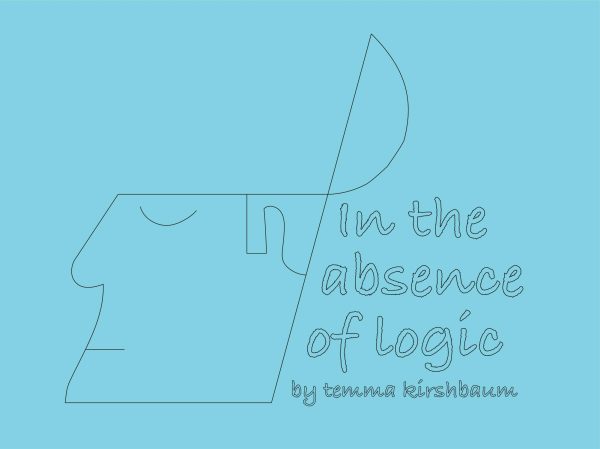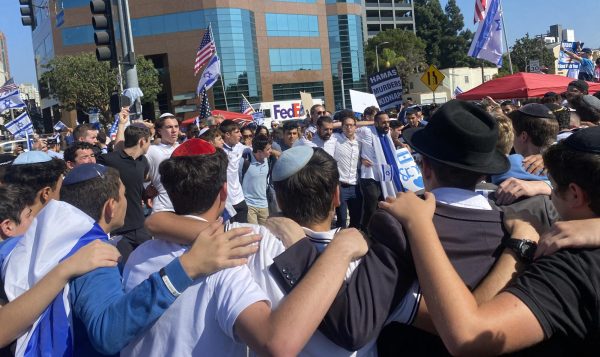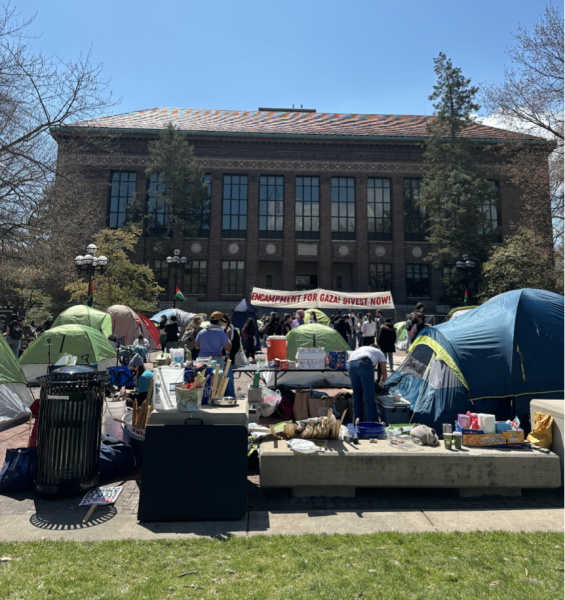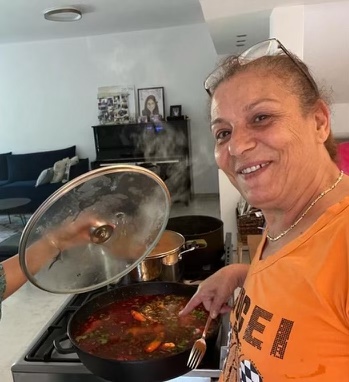Debate for local Assembly seat finds differences on BDS, homelessness and other issues
Tuesday’s special election is on Shavuot, but all voters received mail-in ballots
NEIGHBORHOOD: The 54th Assembly district includes Beverlywood, Pico-Robertson, Westwood and other areas where most Shalhevet students live.
“What is your view on U.S-Israel relations, California-Israel trade, and BDS, the Boycott Divestment Sanctions movement?”
When the two most prominent candidates running for state Assembly were asked this question May 3, Heather Hutt said the answer is simple — she opposes BDS and believes Israel should be protected and “whole” at all times.
“I certainly do stand against the boycott,” said Ms. Hutt. “Israel is our ally, we need to protect them, we need them to be whole at all times and so I’m against it — it’s just that simple.
The other, Isaac Bryan, had a more complicated answer, saying that he supports boycotts, saying he couldn’t help thinking of boycotts that had achieved gains for Black Americans. But this one is “complex,” he said, adding that Israel is an ally.
“It’d be hard-pressed to get me to say that I’m against boycotts, as a Black American,” said Mr. Bryan, one of four candidates in the race — including Ms. Hutt — who is Black. “Right? It’s deep, it is more complex, it’s not that simple.
“That being said, violence of any kind — economic violence or physical violence, state-sanctioned violence — all … have to be talked about in these spaces, and we need to have these honest conversations… Israel’s an ally to the U.S, an ally to California, and we have to maintain that with absolute sovereignty.”
Co-hosted by the American Jewish Committee and B’nai David Judea Congregation in Pico-Robertson, the Zoom event, titled the 54th District Special Election Forum, featured all six candidates running for the vacant Assembly seat: Ms. Hutt, Mr. Bryan, Dallas Fowler, Cheryl Turner, Samuel Robert Morales and Bernard Senter.
Hutt and Bryan are the presumed frontrunners because of their many endorsements and the visibility of their campaigns through advertising. Both are Democrats.
Ms. Hutt, who served as State Director and senior adviser to then-U.S. Senator Kamala Harris, is endorsed by U.S. Rep. Maxine Waters, current 50th District State Assembly representative Richard Bloom and others Assembly members, and many unions, amongst other endorsements.
“It is clear to me, even if we didn’t have this forum, that Israel has a right to exist, and I have always been an ally to my Jewish community,” said Ms. Hutt. “And I’ll continue that, whether I’m an Assembly member or not.”
Mr. Bryan, who advised the previous occupant of the 54th State Assembly seat, Sydney Kamlager, ran the campaign for Measure J, an LA County measure passed last fall to reserve some law enforcement funds for supporting community programs and alternatives to jail. In addition to Ms. Kamlager, he is endorsed by the Los Angeles Times, U.S. Rep. Karen Bass, former County Supervisor Zev Yaroslavsky and others.
“I’ve always been about building coalitions,” Mr. Bryan said. “It’s why I sought out the Jewish community in the district.”
Each candidate got equal time to answer questions, which were moderated by Mr. Bob Horning, co-chair of the AJC’s Public Policy Committee.
Topics discussed were meant to reflect the Jewish community’s interests, debate officials said. Among them were BDS, the U.S’s relationship with Israel, and combatting hate.
“We thought this was a good moment to be able to engage the candidates, to encourage the candidates, to meet members of the community who may very well be their constituents in a few weeks,” said Richard Hirschhaut, Regional Director of AJC L.A.
“It really is an opportunity for the candidates to speak to a significant sector of the district which is, in fact, the Jewish community,” he said.
The 54th district Assembly seat became open when Assemblywoman Kamlager was elected in March to the State Senate, replacing Holly Mitchell who had been elected a county supervisor in November.
Though almost all of the candidates were Democrats — as are Kamlager and Mitchell — there were still blurred lines and subtle differences in their responses.
BDS, which stands for “Boycott – Divest – Sanctions,” works to cease international trade and support for Israel. The BDS website claims that Israel is “occupying and colonizing Palestinian land,” “discriminating against Palestinians,” and “denying Palestinian refugees the right to return to their homes.”
It also says that the group is an “inclusive, anti-racist human rights movement that is opposed on principle to all forms of discrimination, including antisemitism.”
Speaking on U.S-Israel relations — and a full week before current hostilities broke out — Mr. Bryan said that a two-state solution has been the American policy, but that the U.S is not communicating properly with “domestic partners.”
“There is a distinction between supporting Jewish communities and … getting involved in the local politics of Israel too extensively without being there,” Mr. Bryan said.
He said America’s involvement should be “thoughtful,” so as not to further divide Israel.
“The U.S has always stood strong on one side, but we haven’t helped resolve,” he said.
The only non-Democrat in the race is retail grocery worker Bernard Senter, who said he is running on behalf of the Socialist Workers Party. Mr. Senter said he opposes BDS because it feeds into anti-semitism.
“I’m for the recognition of the state of Israel and I think that it would behoove the Palestinian leadership really fighting for the aspirations of the Palestinians to do the same,” Mr. Senter said. “I’m also in favor of a contiguous Palestinian state with East Jerusalem as its capital.”
Another topic discussed at the debate was hate — specifically anti-semitism, although Mr. Bryan also brought in problems experienced by Asian and LGBTQ Americans.
Mr. Bryan said that hate manifests itself in policy and that hate needs to be thought about on a more systemic level.
“We have to think beyond just the one-on-one interactions of the community and think about how our legislators and how our systems can promote opportunity, love, and well-being through policy,” said Mr. Bryan. “Because hate is more than just the visceral encounters. It’s deep and it’s rooted and it’s baked in, and we need to weed it out at all costs.”
Ms. Hutt said there are laws in place against all kinds of hate, but that they just aren’t being enforced properly.
“That would be part of what I would do,” Ms. Hutt said. “Go back in the books, see what laws already exist, and make sure that they are working.”
Only one candidate, Dallas Fowler, mentioned California’s controversial anti-bias curriculum — passed by the Legislature in 2019 and since then debated as to its recognition of anti-semitism. Ms. Fowler said she had had an ethnic studies curriculum at her high school and that ethnic studies should be included at the local level.
Homelessness, housing density, and other economic issues received more attention.
Ms. Hutt said she opposes housing bills that would increase neighborhood density and said that California could use so-called “triple net leases” on blighted commercial properties to quickly house the homeless.
“We would use the same kind of process that we used on Project Room Key,” Ms. Hutt said, referring to Los Angeles’ renting hotel rooms to house people early in the pandemic.
“The Federal Government has billions of dollars in the housing infrastructure,” she said. “I would bring those billions of dollars into this community so that we would be able to satisfy our homeless problem.”
Mr. Bryan said that communities are suffering from environmental hazards, underfunded schools, grocery store closures due to employers’ unwillingness to pay Hero Pay, and a growing homeless population — all because, he said, of the disconnect between political decision-making and morals that unite the community.
“People are hurting, and we have ideas, and we have solutions, but we don’t have the political courage to move things forward,” Mr. Bryan said. “We don’t have our footing right in the values that bind us all.”
He said that the pandemic was used as an excuse for a lack of spending on housing, but that now, the state has a large surplus along with billions of dollars arriving in federal aid.
“We got to make sure that that gets to the communities that were the most hurt,” said Mr. Bryan.
The election will take place next Tuesday, May 18, but voters observant voters need to vote by Sunday due to Shavuot. All voters in the 54th District received mail-in ballots.
This story won Second Place, Award for Excellence in Writing About Politics/Government, in the Simon J. Rockower Awards of the American Jewish Press Association.
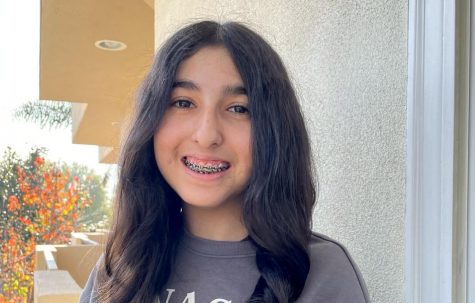
Talia Davoudian, ninth grade, joined the Boiling Point first semester of her freshman year and serves as a staff writer. In her free time, she enjoys archery, jewelry making and spending time with friends and family.

